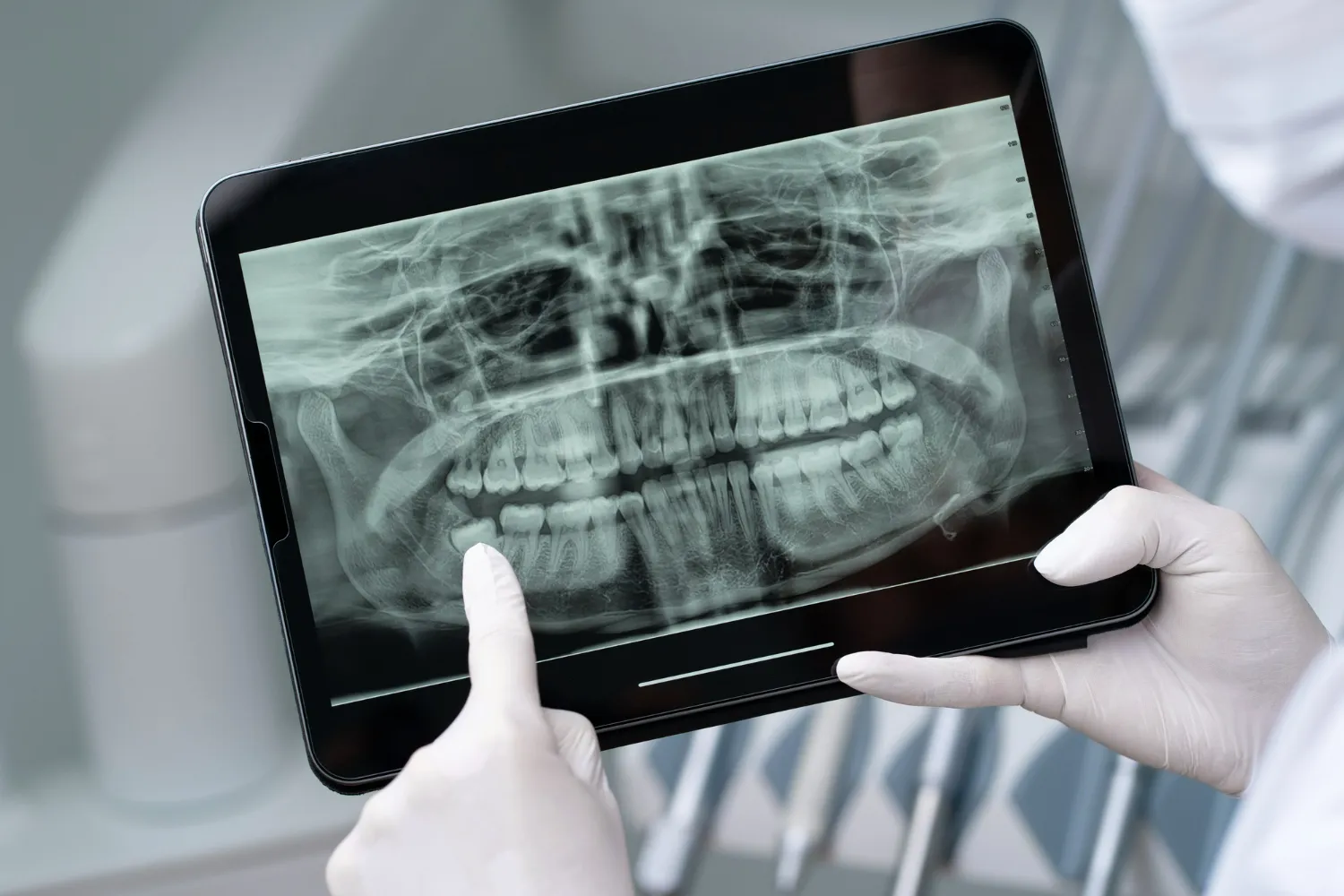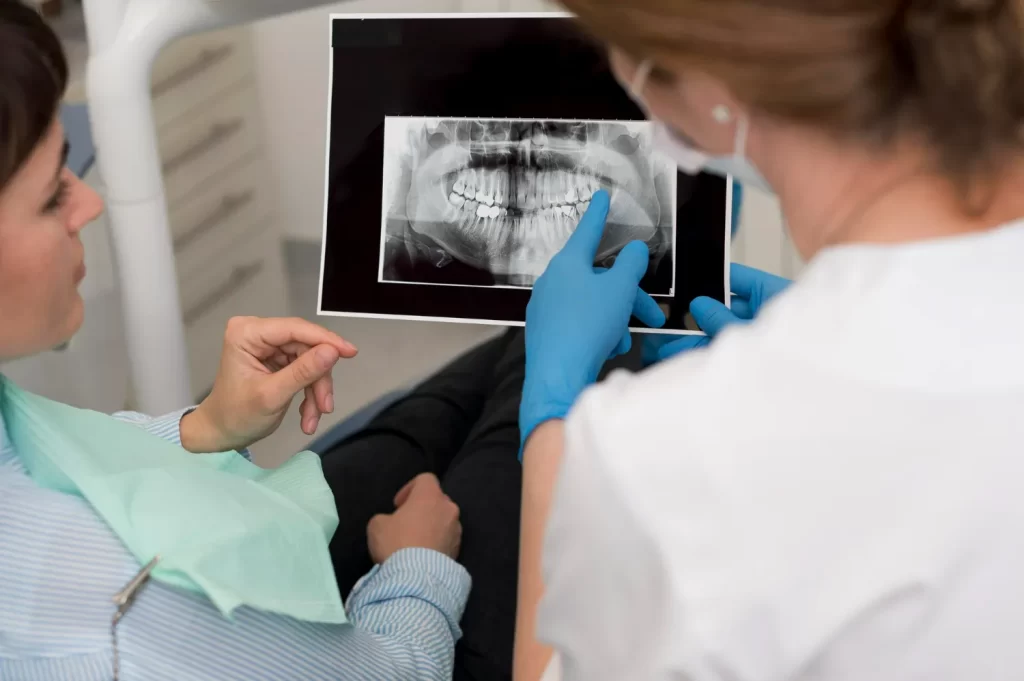Can Wisdom Teeth Cause Headaches or Migraines? Causes, Symptoms & Relief

Yes, wisdom teeth can cause headaches, especially when they are impacted or erupting improperly. This issue arises when wisdom teeth do not have sufficient space to emerge fully, leading to inflammation, jaw tension, or even nerve irritation, all of which can result in headaches or migraines.
How Do Wisdom Teeth Cause Headaches?
Key Reasons Why Headaches Occur
- Impacted wisdom teeth: These fail to erupt fully and can press against surrounding teeth, nerves, or jawbone. This pressure can lead to pain that radiates to the head.
- The eruption process: As the teeth push through the gums, they may cause swelling, inflammation, and jaw pressure, all of which are linked to headache development.
- Jaw tension: An improper bite or prolonged clenching due to pain can tighten the jaw muscles, leading to tension headaches.
- Referred pain: Pain signals from the jaw can travel to the head, particularly affecting the temples or sinuses.
- Nerve irritation: In certain cases, the roots of wisdom teeth may aggravate nearby nerves, resulting in persistent headaches.
- Migraines: Chronic discomfort and stress from wisdom tooth issues may even act as a trigger for migraines in some individuals.
Understanding the Link Between Wisdom Teeth and Headaches
The connection between wisdom teeth and headaches lies primarily in pressure and inflammation. These third molars often erupt in late adolescence or early adulthood, a time when the jaw has typically stopped growing. With limited space at the back of the mouth, these teeth may grow at odd angles, pushing into neighbouring structures or becoming stuck beneath the gumline.
When this happens, discomfort doesn’t always remain localised. The pressure and inflammation in the jaw can influence surrounding nerves and muscles, creating a domino effect that ends in a headache.
Recognising When Wisdom Teeth Are Causing Headaches

Wisdom tooth-related headaches often come with a package of other symptoms. Recognising these can help determine the cause more accurately:
- Persistent pain at the back of the mouth or jaw
- Swelling or tenderness in the gums near the wisdom teeth
- Jaw stiffness, particularly upon waking or after eating
- Pain radiating towards the temples or behind the eyes
- Clicking or locking jaw movements
- Earache without infection
How Impacted Wisdom Teeth Cause Headaches and Pain
Impacted wisdom teeth are particularly problematic. When a tooth is unable to fully emerge, it may push against neighbouring teeth or become trapped in the bone.
Why This Leads to Headaches:
- Localised inflammation: Swollen tissues around the tooth can radiate discomfort to the face and head.
- Disturbed bite alignment: A shifting bite may strain jaw muscles, triggering tension headaches. In some cases, teeth straightening options such as Invisalign may be advised to restore proper alignment.
- Secondary infections: Impacted teeth can sometimes become infected, adding another layer of pain that extends beyond the mouth.
Do Wisdom Teeth Cause Migraines in Some People?
While wisdom teeth are not a direct cause of migraines, they may act as a trigger in individuals who are prone to them.
What Makes the Connection?
- Physical stress: Chronic dental pain or jaw clenching can set off a migraine attack.
- Nerve pressure: Inflammation and impaction may affect the trigeminal nerve, which plays a significant role in migraine pathways.
Diagnosing the Source: Are Your Headaches From Wisdom Teeth?
It can be tricky to pinpoint whether a headache is caused by wisdom teeth or another issue, such as sinus congestion, eye strain, or dehydration. However, a dentist can perform a thorough examination, including X-rays, to determine whether your wisdom teeth are the likely culprits.
Signs It’s Time to See a Dentist:
- Headaches that coincide with jaw or gum pain
- Pain that worsens when chewing or opening the mouth wide
- Swelling or bleeding around the back molars
- Chronic ear or neck pain with no apparent cause
At Dr Bobby Chhoker’s practice in Sydney, we take a holistic approach to diagnosis, examining all contributing factors to your discomfort. With access to advanced imaging and experienced surgical care, we ensure clarity and confidence in your treatment plan.
Effective Treatment for Wisdom Teeth Causing Headaches
Treatment depends on the severity of the situation. In some cases, home care may suffice. In other, cases professional intervention is necessary.
Home Remedies
- Use a cold compress on the jaw to reduce swelling
- Take over-the-counter pain relief such as ibuprofen
- Rinse with warm salt water to ease gum irritation
- Avoid chewing on the affected side
Professional Treatments
- Antibiotics: If infection is present
- Dental cleaning: To prevent or treat gum disease
- Surgical extraction: The most common long-term solution for impacted or problematic wisdom teeth
Dr Bobby Chhoker offers gentle and precise wisdom tooth removal under local anaesthetic or conscious sedation, depending on your comfort needs. His focus on minimal trauma and maximum recovery ensures you’re back to feeling your best as quickly as possible.
Post-Extraction Recovery: Will Headaches Go Away?
For most individuals, removing problematic wisdom teeth relieves the pressure and irritation causing their headaches. However, the body may need time to heal post-extraction. Headaches may persist for a few days as the muscles and nerves in the area settle.
Signs That Healing Is Progressing Well:
- Gradual reduction in headache frequency and intensity
- Diminished jaw soreness
- Improved bite alignment
If headaches continue beyond the expected recovery period, it’s important to revisit your dentist or GP to rule out other causes. In some rare cases, issues like deep-root infection may require root canal treatment.
Preventing Headaches Caused by Wisdom Teeth

Keeping an eye on your wisdom teeth, even before symptoms arise, can prevent complications later. Regular dental check-ups are key, as they allow early identification of potential impaction or misalignment.
Prevention Tips:
- Schedule dental check-ups every six months
- Opt for X-rays when recommended to assess hidden issues
- Practice good oral hygiene to reduce gum inflammation
At Dr Bobby Chhoker’s clinic, proactive oral health assessments ensure you’re not caught off guard by wisdom tooth complications. Early intervention is often the simplest and most comfortable solution.
When to Seek Urgent Dental Advice for Wisdom Tooth Headaches
While headaches are often a minor nuisance, certain symptoms paired with dental pain warrant emergency dental care:
- Fever or chills indicating a possible infection
- Difficulty swallowing or breathing
- Intense, throbbing jaw pain
- Pus or fluid leaking from the gums
Prompt treatment can prevent serious complications and help restore comfort swiftly.
Do wisdom teeth cause headaches? Yes, particularly when they are impacted, misaligned, or causing nerve and jaw issues. Headaches linked to these molars are not uncommon, but with early detection, appropriate treatment, and a bit of dental diligence, it’s possible to keep both your mouth and your head pain-free.
If you’re experiencing recurring headaches and suspect your wisdom teeth may be the cause, don’t delay, book a consultation with Dr Bobby Chhoker. His compassionate, evidence-based approach ensures you receive the highest standard of care, from diagnosis through to recovery.
Take the first step towards a clearer head and a healthier smile today.
